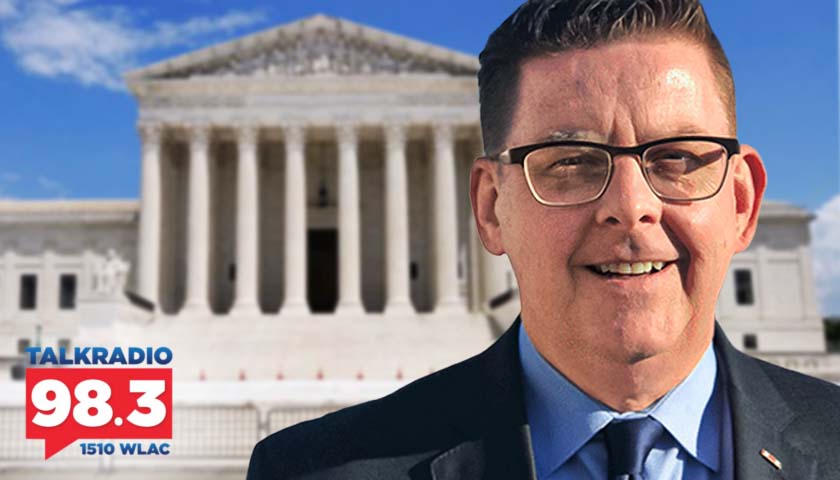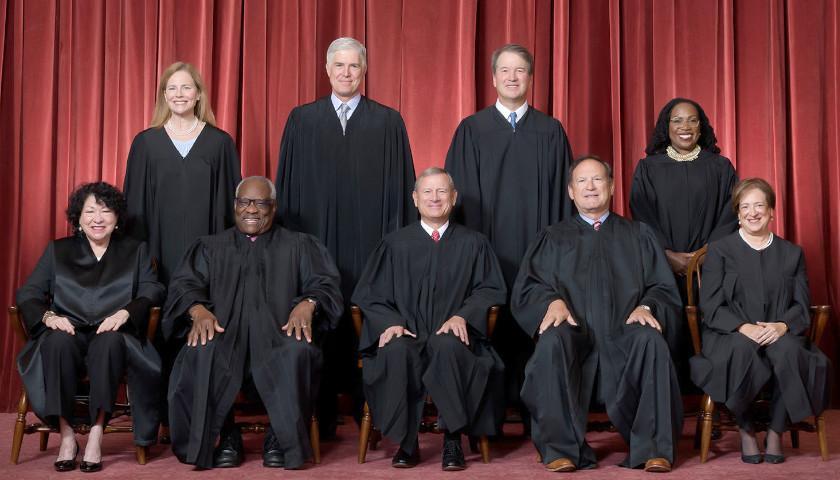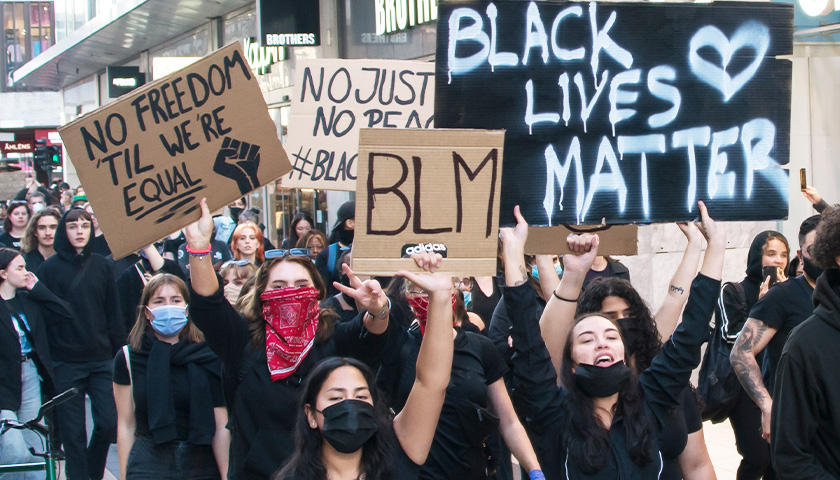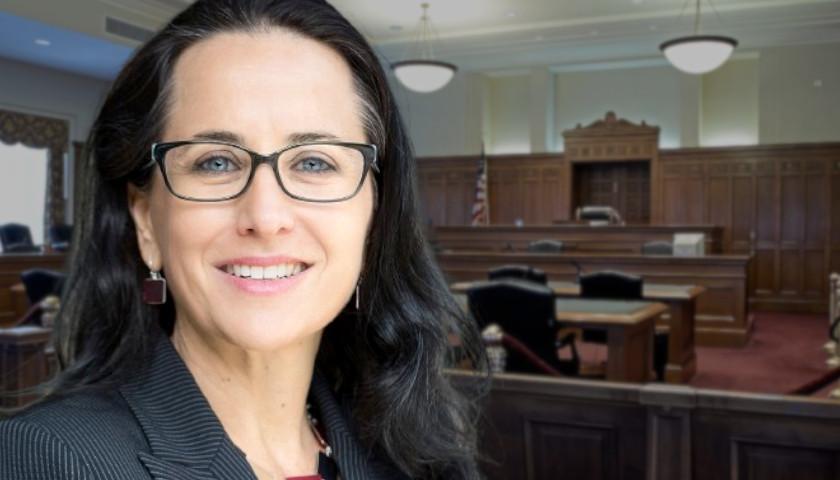Live from Music Row Wednesday morning on The Tennessee Star Report with Michael Patrick Leahy – broadcast on Nashville’s Talk Radio 98.3 and 1510 WLAC weekdays from 5:00 a.m. to 8:00 a.m. – host Leahy welcomed The Tennessee Star’s National Political Editor Neil McCabe to the newsmaker line to give his take on the Supreme Court potential decision on the Mississippi abortion ban law.
Leahy: We are joined on the newsmaker line now by the very best Washington correspondent in the country. Our national political editor for The Tennessee Star and The Star News Network, Neil McCabe, who is in Washington, D.C., as we speak. Good morning, Neil.
McCabe: Michael, very good to be with you, sir.
Leahy: Big news going on in Washington, D.C. today. The Supreme Court is about to hear oral arguments about perhaps one of the most important cases in years. The case is called Dobbs v the Jackson Women’s Health.
It centers on a Mississippi law that would ban almost all abortions after 15 weeks of pregnancy. The left is crazy over this. They say it’s going to be a violation of the 1972 ruling, Roe v. Wade, which made abortions legal in the United States.
And, of course, in 1992, Planned Parenthood v. Casey. What can you tell us from Washington, D.C. today, Neil, about the oral arguments about to be heard in just about an hour and a half in Washington, D.C., at the Supreme Court?
McCabe: Well, you can look at a carnival-like atmosphere at the Supreme Court today. And really just to put things in perspective, when Roe v. Wade came down in January of 1973, it was a shock. Nobody really knows what’s before the Supreme Court every day.
And so millions and millions of Americans who are against abortion, who consider themselves pro-life, they weren’t even tracking that this thing was an issue. And then they woke up in the morning and read it in their morning paper.
And then they were told, well, there’s nothing you can do about it. It’s at the Supreme Court. And for the last 40 plus years, people have been trying to change it. Just to put it in perspective for you, when Ronald Reagan was elected president in 1980, the Republican platform said that they would put a constitutional amendment that said that life begins at conception.
Well, that was only seven years after Roe, Mike. Reagan was only seven years. And here we are so many years later, more than four decades and people are still angry about Roe v. Wade.
And what’s happening is some Mississippi health officials, it’s Dobbs v Jackson Health, Jackson Health being the abortion clinic. And they basically make a point that the Supreme Court invented the right to abortion.
It’s a so-called unenumerated right. That is a right that sort of the justices, they say we read between the lines and we just sort of get that that’s what the framers would want even though it’s not written anywhere like say, free speech or gun rights, which is actually in the Constitution.
And they say, hey, if it’s not in the Constitution, it’s not in the Constitution, Roe v. Wade and then it’s follow up decision, Casey needs to be overturned.
Leahy: Well, and you make a very good point there because when you look at the analysis that’s done of the Roe v. Wade decision, the majority opinion there in January of 1973 was written by Harry Blackman, who is perhaps one of the most undistinguished Supreme Court jurists in modern history.
But Harry Blackman wrote the decision, and most people look at it and say this was clearly a political decision, not a legal decision. He didn’t cite the Constitution. It was politically popular among certain groups, women’s rights groups, and the various folks on the left.
But it was a political decision and not a legal decision. But it’s been since 1973. What do you think are the big questions that the nine Supreme Court justices will be asking today in oral arguments on this case of Dobbs v. Jackson Women’s Health?
McCabe: We’ve seen the last few years going back five to seven years there’s been a shift in how the pro-life forces have approached it. Rather than going for an outright ban, the pro-life forces have said, hey, let’s do pain-capable, and let’s deal with viability because the Roe decision said you could not outlaw abortion further than viability.
Can the fetus survive outside the womb? And so I think you’re going to see questions about viability, the Mississippi law that’s at issue here allows abortion up until 15 weeks. Most people debate over whether viability outside the womb is, say, 20 to 24 weeks. And so we may get into some viability issues.
But just to make this point, Blackman was a Republican nominee, and there have been many Republican nominees to the Supreme Court that have not only voted for Roe v. Wade but affirmed it in Casey. The Republican Party really needs to explain how they can be a pro-life party if abortion is still the law of the land.
Leahy: So supposedly the Supreme Court, the members of the court are supposed to listen to the arguments and then make their ruling. My view is that we know exactly how three justices are going to rule on this.
Elena Kagan, Justice Breyer, and Justice Sotomayor. They’re going to side against the Mississippi law that bans abortions after 15 weeks. Would you agree with my analysis there?
McCabe: Oh, yeah.
Leahy: Okay.
McCabe: Those three are in the bank for the left.
Leahy: Exactly. Now, the other six, John Roberts being one of them, Alito, Clarence Thomas, Gorsuch, Kavanaugh and Amy Coney Barrett. I think Alito and Thomas will side with Mississippi. I don’t know about John Roberts.
I don’t even know if John Roberts knows about John Roberts. And then that leaves Kavanaugh, Gorsuch, and Barrett. Kavanaugh and Barrett have ostensibly been very pro-life, but they’ve been, in my view, very unreliable from a conservative perspective in their two years on the bench. What are your thoughts?
McCabe: I think with those three Trump appointees, the real question is not just the Republican Party but the Federalist Society. When Trump was running for president in 2016, he provided a list. This is who I’m going to name.
These are the people I’m going to choose from if a Supreme Court vacancy comes up. And so of course, we had the Scalia vacancy that was already up and that, of course, went to Gorsuch.
But the Federalist Society has been given control over who Republicans put on the court. And if these three Federalist Society vetted justices do not side with Mississippi, there’s going to have to be a comeuppance.
And as you talk about John Roberts, John Roberts has been flaky ever since Obamacare. Something happened in that Obamacare decision. Scalia made the point that Roberts wrote the decision overturning Obamacare.
And then somebody put the touch on him, and he wrote the decision upholding Obamacare. And still, he wrote both sides of this decision. And ever since that Obamacare decision, Roberts has been unreliable to Conservatives.
Leahy: Yes, that was back in 2012. The case was NFIB v Sebelius. I agree with your analysis entirely. So Roberts could go either way, depending upon which way the wind is blowing. And so the question is, Gorsuch, Kavanaugh, and Barrett.
My sense is that it will be a huge disappointment to Conservatives and pro-life advocates if any of those three Gorsuch, Barrett, or Kavanaugh rule against the Mississippi law. But I don’t really have a very good clue either way on that myself.
McCabe: I think the question really is, what is the sway that Justice Clarence Thomas now has in the court as the most senior justice more senior than Roberts? He asks questions first, and he sets the tone of the questioning.
No one interrupts Thomas and no questions begin until he is done. The power of the chief justice really is the fact that if he votes in the majority, he writes the decision or he picks someone to write the decision.
And so if he’s in the majority, he has that kind of control. And a lot of times a justice will join the other side so that he has control over how the ruling is written up. If Roberts is not on the winning side and Thomas is, Thomas has that same role as the senior justice on the winning side would control how that is written.
Roberts is so flaky that he has actually been on the losing side. He would rather lose and have no participation in the writing of a ruling.
This is what’s so bizarre, because, in the past, justices have jumped to the other side so that they could control how the winning side wrote it up. If Justice Thomas is writing this decision, Roe is not long for this world.
– – –
Tune in weekdays from 5:00 – 8:00 a.m. to the Tennessee Star Report with Michael Patrick Leahy on Talk Radio 98.3 FM WLAC 1510. Listen online at iHeart Radio.








